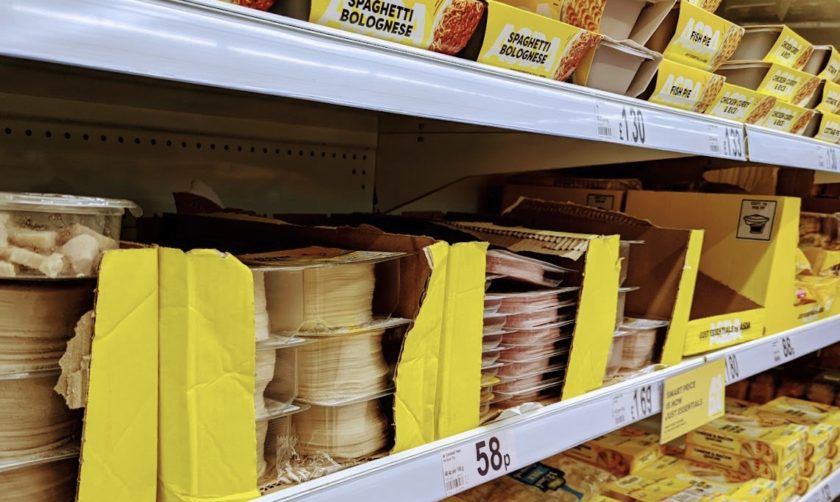Budget groceries in major supermarkets seen a sharp increase in prices

Budget groceries in the UK’s major supermarkets have experienced a sharp increase in prices, overshadowing the inflation rates of mid-range and premium food and drink products.
A comprehensive study conducted by consumer watchdog Which? has highlighted a concerning trend amidst the ongoing cost of living crisis.
The overall annual food inflation rate has dropped to 9.5%, with notable decreases in categories like butters and spreads.
However, budget-range groceries, essential for many amidst the financial squeeze, have seen an alarming 20% price hike over the past year.
Which?’s extensive food and drink inflation tracker, encompassing nearly 27,000 products across eight major supermarkets, sheds light on this issue.
This includes Aldi, Asda, Lidl, Morrisons, Ocado, Sainsbury’s, Tesco, and Waitrose.
Specific Price Increases
The tracker has identified some of the most affected budget items.
For instance, the price of Just Essentials pears at Asda doubled from 45p to 90p within a year. Similarly, chocolate chip cake bars at Sainsbury’s saw a 69% increase, jumping from 44p to 75p.
These figures starkly contrast the overall inflation trend, emphasizing the disproportionate impact on budget ranges.
Lidl reported the highest inflation rate of 11.6% among the supermarkets, a worrying sign for budget-conscious consumers.
When comparing budget groceries to their premium counterparts, the price disparity becomes more evident.
Budget-range items saw a 19.6% increase in price from October 2022 to October 2023, significantly outpacing the 8.8% rise in branded groceries and a mere 7% in premium own-label products.
Despite the gloomy outlook for budget grocery prices, there has been a silver lining.
Butters and spreads, for example, have seen a decrease in prices.
Anchor spreadable blend, available at Waitrose and Asda, witnessed over a 30% drop in price, offering some relief in specific categories.
Call for Action
Which? urges major supermarkets, especially those operating convenience stores like Tesco, Sainsbury’s, Asda, and Morrisons, to stock essential budget-range items in these smaller outlets.
Their research indicates that these items are often missing in convenience stores, disadvantaging consumers with limited mobility or access to transportation, who are then forced to opt for pricier alternatives or go without.
Spotted something? Got a story? Email: [email protected]
Latest News
